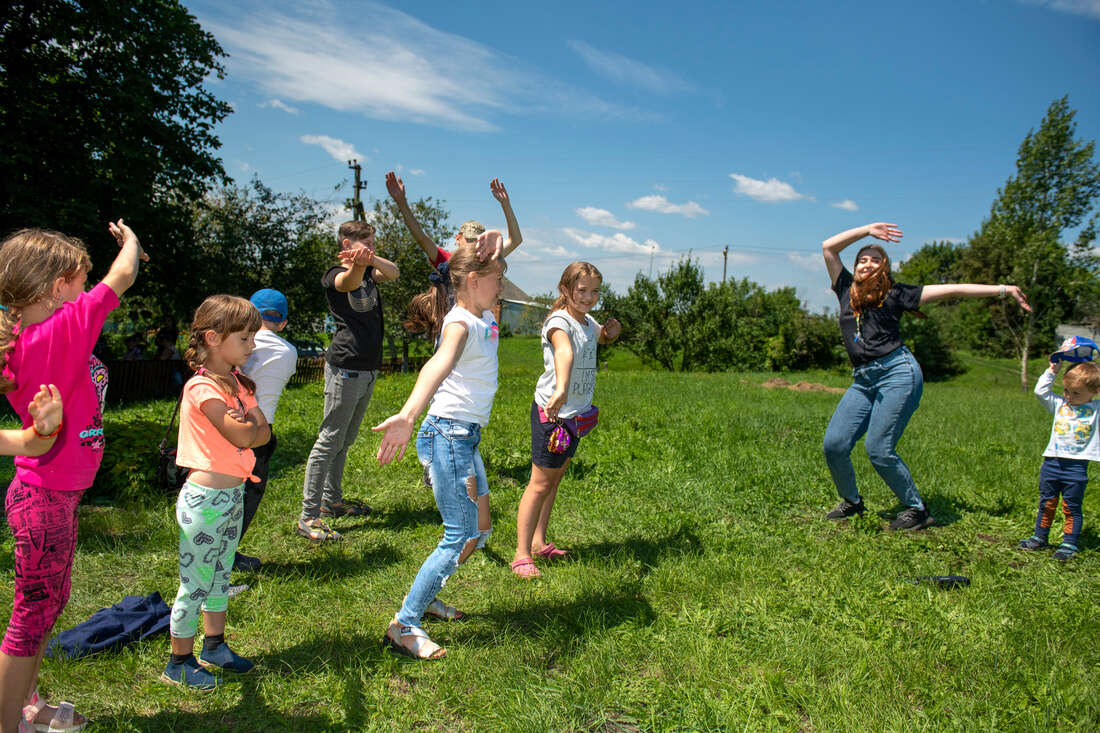
Ukraine: Stories of resilience amid two years of war and a decade of conflict
As Ukraine marks two years since the escalation of the war, meet Alla, Natasha and Anna, who are each trying to maintain a normal life amidst the tragedy.

As Ukraine marks two years since the escalation of the war, meet Alla, Natasha and Anna, who are each trying to maintain a normal life amidst the tragedy.
Two years ago, on February 24, 2022, the world held its breath as Russia embarked on a full-scale invasion of Ukraine. Whether still in Ukraine, or forced to live in a whole new country, people’s living conditions, mental health, financial situation, and access to education continue to be detrimentally impacted. Countless others have been violently torn apart from their loved ones.
Below, get to know Alla, Natasha, Anna and their families, who have all faced unimaginable situations, yet continue to live with courage and hope.
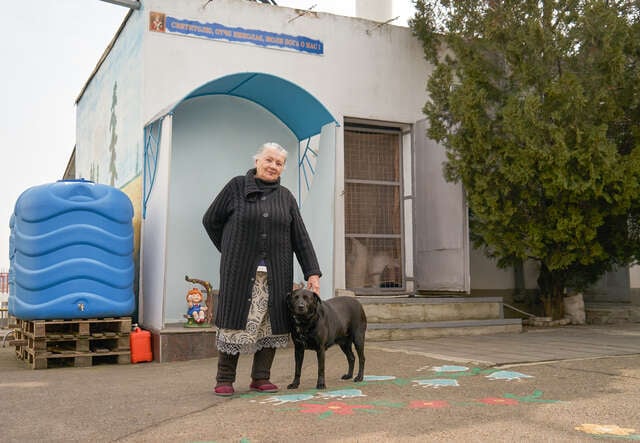
When the conflict in Ukraine intensified, 84-year-old Alla found herself residing in a nursing home. Several rockets struck the home, damaging the church’s roof, with one falling onto a bathroom that thankfully no one was in at the time. “It was awful for me, the fire, the rockets…” she recalls. “I was standing in the corridor and saw through the window how it was flying, how everything was burning.”
Alla has endured the hardships of war before. She has lived through not just one, but two wars in her lifetime: the Second World War and the current conflict. She remembers the beginning and end of the previous war as well as the liberation of Mykolaiv and how the city came to meet the returning soldiers.
However, all of this did not diminish the impact of the ongoing war on her. “I can’t watch the news without tears,” Alla says. “How many children have died, how many children injured, and how many have been left without parents? It’s scary, very scary.” With no end in sight, the war’s prolonged nature is one of the key factors taking a psychological toll on Ukrainians.
Following the loss of her son 21 years ago, Alla found herself without any close relatives in good health to provide care. Eight years ago, she made the decision to move into a nursing home where she finds solace in the companionship of the staff who share her positive outlook on life. “We have amazing people here; our director, our cooks, our nurses—I’m glad I’m here,” Alla says with a smile.
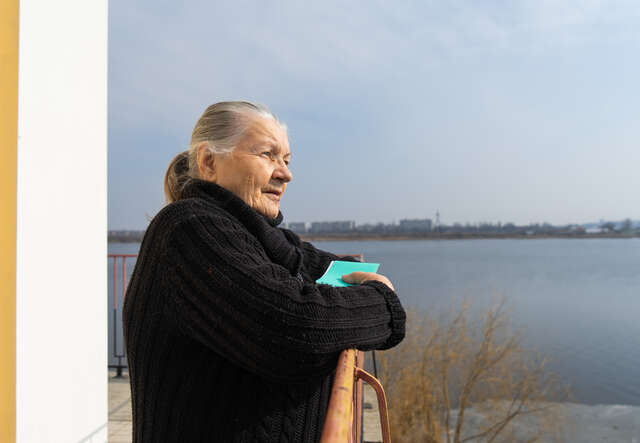
As one of the senior residents, Alla frequently lends a hand in looking after fellow patients. Her affection for animals shines through as she delights in spending time with her dog Nika. She also enjoys watching TV, attending concerts within the facility, and immersing herself in books. It is her vibrant spirit and mindful approach to life that serve as her guiding light amidst the hardships of war.
“We have to live, to not give up and support others. For example, the new woman who came here recently. She told me: “I have such a bad memory” and I replied: ‘No worries, me too!’ But when I think a lot, I recall things, and words."
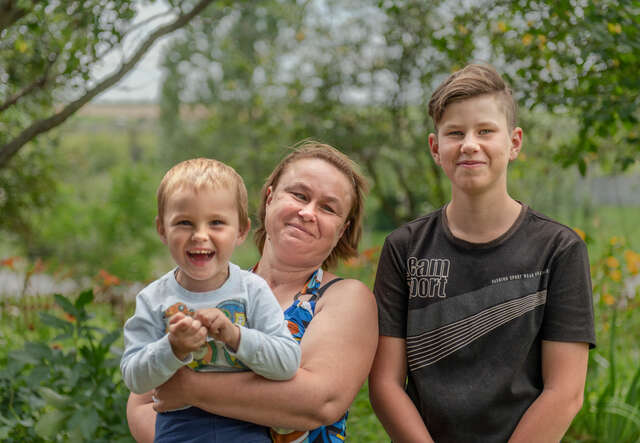
Natasha and her 13-year-old son, Mykola, vividly recall the loud explosion that resonated as a missile hit a nearby airport in the Kharkiv region. The jarring noise roused them from sleep at nearly five in the morning.
Struggling to grasp the unfolding situation, Natasha began quickly messaging her siblings in the family group chat. Later that day, as her sister retrieved her children from Kharkiv, they were confronted with the sight of the airport ablaze. Promptly, Natasha sprang into action, readying her family's cellar as a secure refuge.
The family proceeded to experience a series of harrowing moments as the war unfolded and their village became a battle zone. One came just after Natasha completed bathing her 18-month-old son, Denys. As she settled on the sofa to put him to sleep, the sound of machine gun fire and piercing whistles echoed directly above their home.
“We were looking for his soother [pacifier]. It was probably through an act of God that it became lost. Mykolya went down into the cellar [to look for it]. And then, bang, bang! The door. The windows, of course, the doors, well, rattled.”
At that moment, everyone in Natasha’s family knew what they had to do, including 3-year-old Denys. “All he said was, ‘Denys to the cellar.’ That is to say that a child of 18 months understood already that we had to flee into the basement. He had only just begun to utter the words….,” Natasha recalls, still with disbelief.
The war has undeniably taken a toll on Natasha's family. Soon after tensions rose, the school and youth center in the village were bombarded and obliterated, depriving local children of a secure space to meet and play. During the war in Ukraine, schools have been a prime target, resulting in over 4,000 educational institutions being harmed or razed since February 24, disrupting the schooling of countless children.
In April 2023, the IRC initiated organized programs, distinguishing itself as the sole global humanitarian body engaging with children in the village. Natasha appreciates the respite provided to her sons, enabling them to escape the realities of war momentarily, engage in play with peers, and benefit from the guidance of dedicated case workers.
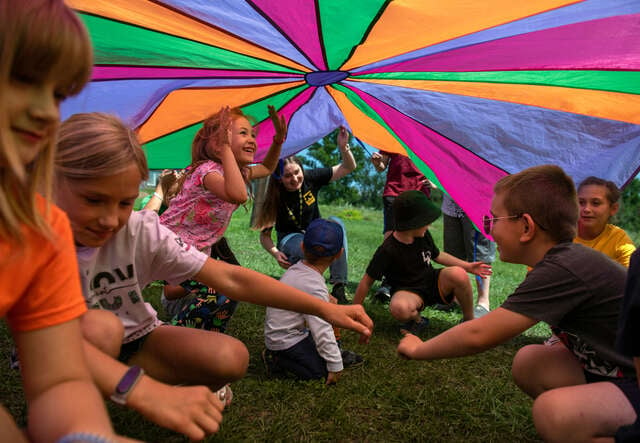
In an attempt to regain some sense of normalcy, the family has also returned to their daily routines working on the farm. Natasha works as a milkmaid, while Kolya helps tend the cows when he’s not attending school online. With the arrival of humanitarian aid, Natasha and her fellow villagers have united to assist one another in fulfilling their basic needs.
Natasha’s son, Mykolya, aspires to excel in his studies and hopes to work with cars or tractors when he’s older. He also dreams of the war ending as soon as possible, “So that there are no more of these explosions and air raid warnings. So that there is peace in our land.”
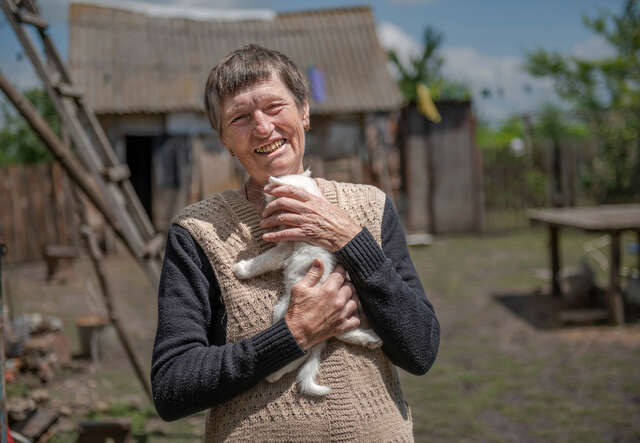
For Anna, 69, the war in Ukraine escalated quickly around her. She and her husband Andrii were at home, watching footage of the fighting on television, when they began to hear intense shooting near their village in the Kharkiv region.
With no food supplies at home, they opted to board the local train in search of bread. However, the ongoing conflict disrupted their journey, forcing them to disembark in the town of Shevchenkove.
From there, they could get a ride to their summer home, but the journey was a harrowing one. Anna had a hard time grasping what was happening as chaotic scenes of war unfolded around them.
“It was very frightening,” she recalls. “There were these awful aircrafts flying. I didn’t understand them. I almost fell down on the ground, it was so terrible. Rumbling all around and shooting going on.”
When Anna and Andrii arrived at their summer home, they immediately hid in their cellar to protect themselves from shelling. “We ran into the house, although the house was shaking throughout as well. The plaster was coming away,” Anna explains. “It was impossible to sleep. We would sleep perhaps for one hour, and then not sleep.”
Caught in the crossfire of their village, Anna and Andrii had to endure everyday life in the middle of a war zone while learning to remain constantly vigilant in case they had to run for protection. “Tanks went along the road every day,” says Anna. “And when the helicopters were flying, I did not go out into the garden because they were flying so very low.”
Persistent assaults on power grids and critical infrastructure compelled the couple to endure phases devoid of electricity and communication signals to reach their two children. Moreover, Russian offensives on infrastructure have deprived countless Ukrainians of basic utilities such as heat, electricity, water, and sanitation for prolonged durations.
The stress of the war proved to be too much for Anna’s husband, who suffered from a stroke in March 2022. Thankfully, he was able to recover, but both he and Anna continued to struggle without access to a health facility to support them or a pharmacy to access their prescriptions.
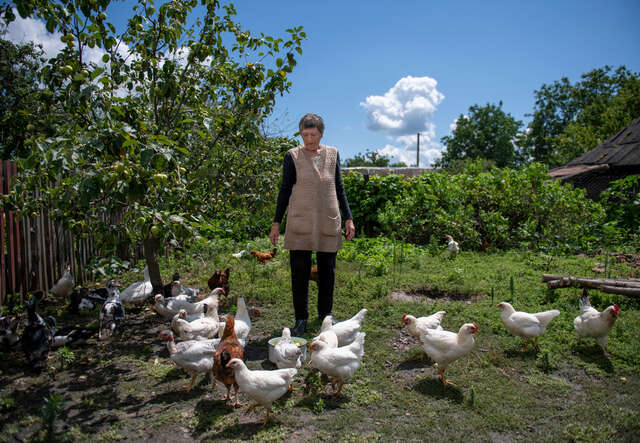
Since their village became reachable to humanitarian organizations, Anna and Andrii have accessed check-ups and medication for their health concerns at the IRC mobile health clinic. These facilities were set up to aid people like Anna and Andrii, who have lacked access to medical services because of the war.
Despite everything she and her husband have been through, Anna remains resilient and tries her best to maintain a balanced mindset. To cope with the ongoing war, she spends her days planting seeds in her garden and tending to her flowers and the small poultry that live on their property – activities that lift her mood in the war. “If you become downhearted and discouraged, then that’s it. You must hold on and even encourage others.”
The IRC has been continually scaling up its response efforts in Ukraine and Poland to meet the evolving needs of displaced families by:
We are assisting Ukrainian refugees in Romania, Hungary, Slovakia, Czechia and Bulgaria, as well as in Germany, Italy, Greece, the United States and the United Kingdom.
Learn more about the situation in Ukraine and the IRC's response.
The strong initial response to the Ukraine crisis has helped prevent even worse outcomes. However, funding for Ukraine’s humanitarian response fell from 87% of requirements being met in 2022 to 61.8% in 2023.
Nearly two years since the Russian invasion, and a decade into conflict, it is critical to continue supporting people affected by the war in Ukraine, both within Ukraine and those who have fled to neighboring countries.